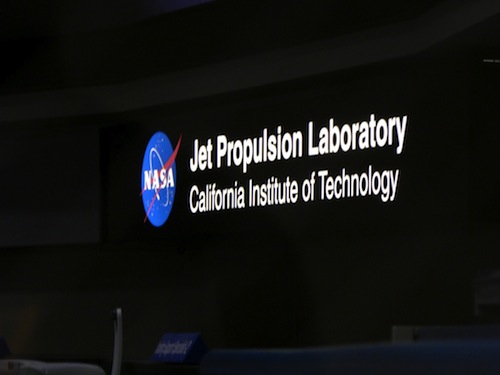 Free Speech
Free Speech
Why Did NASA’s JPL Discriminate Against David Coppedge and Why Does It Matter?

As we noted here previously, NASA’s Jet Propulsion Lab (JPL) first demoted and then terminated employee David Coppedge, a 14-year veteran of system administration at JPL. The case is now going to a jury trial. Why did they fire him?
Because Coppedge shared pro-intelligent design (ID) videos with coworkers. ID is a scientific theory that helps explain key events in the long history of life but, after receiving an unfounded complaint, JPL decision-makers reflexively labeled ID a mere “personal view” and ordered Coppedge to stop talking about ID even though JPL permitted other workers to criticize ID and promote Darwinism, a competing view on the same subject. Coppedge complied with the order, but the damage to his reputation was done, and so his days on the job were numbered. Shortly after being demoted, he was terminated for “pushing religion,” as claimed by Coppedge’s manager.
California’s Fair Employment and Housing Act (FEHA) forbids employers from taking adverse action (e.g., censure, demote, terminate) against an employee because of the employee’s religious expression or affiliation. Although ID is not religion — it is neither a form of religious expression nor a religious affiliation — FEHA bars employers who view employee expression as religion from acting against an employee on that basis. In other words, as far as FEHA is concerned, it is the standpoint of the employer that matters. The law looks to the bad actor’s motives, not to the victim’s self-identification. Here, JPL took adverse action against Coppedge because JPL decision-makers thought that Coppedge’s ID-related videos expressed a religious view, and that by sharing these videos Coppedge was “pushing religion.” Thus, JPL broke the law, and hurt a good employee in the process.
Because JPL broke the law, and refused to make things right, Coppedge filed suit in Los Angeles County Superior Court. He sought vindication of his right to be free from unlawful discrimination. After 18 months of pre-trial litigation, key facts have emerged and the case-deciding legal questions have come into increasingly sharp focus. JPL has resisted Coppedge each step along the way, however. In its final attempt to prevent a public trial by jury on its discriminatory employment practices, JPL asked the Court to summarily adjudicate each of Coppedge’s legal claims, and to thus dispose of the case entirely. At first, the Court sided with JPL, but on reconsideration, it sided with Coppedge. Thus, the case is going to trial, unless of course the parties settle first.
Contrary to its tentative ruling (i.e., the Court’s initial written impression of the case) on the motion for summary judgment, the Court ultimately decided that Coppedge’s expert witness on Human Resources practices may testify at trial, and that a jury rather than judicial determination of the motives of the JPL actors is called for. It is perhaps a significant comment on the nature of ID-suppression cases in general that the Court recognized that this case cannot be properly decided by a judge as a matter of law, “on the papers” and in the abstract, but must instead be decided by non-lawyers reflecting together on live testimony about the particular states of mind and situations that produced the unlawful discrimination in the first place.
Although there is only potential here to make law in California, as goes California so goes the nation, so it is too soon to say that the effects of a favorable verdict would be local and controlled.
Which is to say, in layman’s terms, this could be big.
Photo credit: S.C. Asher.
